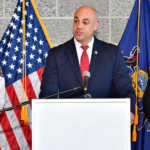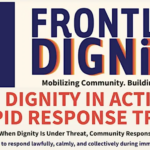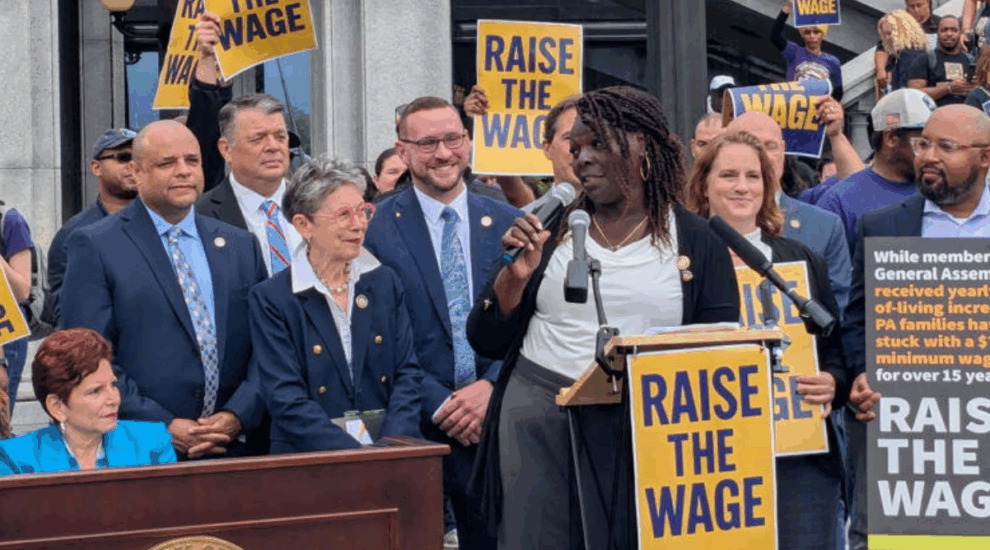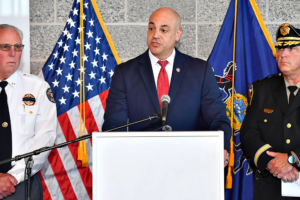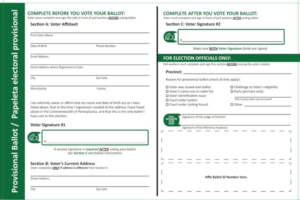Some lawmakers propose that Pennsylvania cities adjust their own minimum wages, allowing rural areas with lower costs of living to maintain the normal hourly rate.
Pennsylvania lawmakers are debating whether to advance a $15 minimum wage boost, with the proposed legislation raising questions about such a decision’s feasibility and potential strain on the regional economy.
Activists assembled at the State Capitol on Monday to urge lawmakers to move House Bill 1150 – a democrat-sponsored bill that would raise the state’s minimum wage to $15 per hour by 2026. Currently, Pennsylvania’s minimum wage is set at the federal level of $7.25 per hour, where it has remained since 2009.
Those in favor of adjusting the minimum wage describe the current rate as “poverty level” and argue the amount should be sufficient to be considered a “livable wage,” particularly in light of recent inflation.
“We need to catch up with the states surrounding us,” stated Maria Andrews, a spokesperson for activist group Pennsylvania Stands Up, which organized Monday’s “Day of Action” at the Capitol.
Pennsylvania state lawmakers and union leaders gathered at the state capitol Monday morning to call on the state to raise its minimum wage to $15 an hour. https://t.co/3QCRjemaPt #pacapitol #minimumwagerally pic.twitter.com/d5PSMn7iZv
— WGAL (@WGAL) May 5, 2025
Opponents of HB 1150, however, argue that the majority of workers receiving that amount are teenagers or other individuals not expecting to earn a living. Critics have also expressed concerns that raising the minimum wage would negatively impact local economies by overburdening small businesses.
“While the Lehigh Valley may be able, and businesses in the Lehigh Valley may be able to support a higher minimum wage, we have to think about what that minimum wage would do to a small taxidermist in say, St. Marys who may not need to pay that high of a wage, because in that local area, the money goes a lot further,” explained State Sen. Jarrett Coleman.
Coleman noted that one area of potential compromise would be allowing urban areas such as Philadelphia and Pittsburgh to set their own minimum wages while leaving the rest of the state to carry on with the status quo.
“I’ve proposed that in the past, saying allow local counties to, if they want to set their own minimum wages,” Coleman added. “I would be supportive of that.”
Some democrats have also demonstrated their support for prioritizing an increased minimum wage in the commonwealth’s cities, with Philadelphia Mayor Cherelle Parker joining an April rally seeking an end to the rule blocking the city from changing its minimum wage.
HB 1150 is not the first attempt that Pennsylvania democrats have made to raise the state’s minimum wage. A $15 minimum wage bill passed the House along party lines last session and prompted identical concerns from conservative members of the legislature and those representing more rural areas.
“As it stands today, nearly 98% of Pennsylvanians earn a wage higher than minimum wage,” Rep. Torren Ecker said at the time. “It’s a misconception that they’re single parents raising children or individuals coming from low socio-economic households. In reality, 93% of these employees have zero children, and a considerable amount of minimum wage earners are from middle- and upper-class families.”

